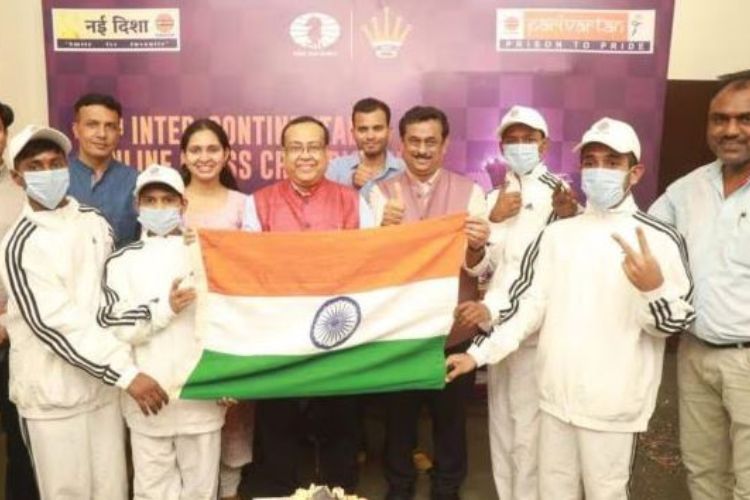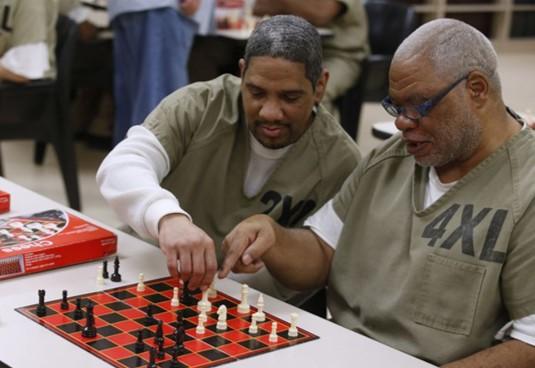
The juvenile team from Bhopal claimed gold, and the junior team from Elluru prison claimed bronze in the annual worldwide event held online and organized by FIDE
It has been a story of the transformation of those who are not accepted by society, the prisoners, and the people housed in juvenile homes in Bhopal.
Interestingly chess has been playing the role of catalyst in the transformation of those individuals, helping them to take part in competitive tournaments and win medals.
The former Grand Master Abhijit Kunte is the man behind this rejuvenation of the prisoners and people locked in juvenile homes in Bhopal.
These individuals recently acquired a unique feat, the gold, and a bronze medal in two such competitions. The players housed in juvenile homes in Bhopal and Elluru at the fourth Intercontinental Online Chess Championship for Prisoners won the medals.
The juvenile team from Bhopal claimed gold, and the junior team from Elluru prison claimed bronze in the annual worldwide event held online and organized by FIDE, the global governing body of chess.
Besides the two youth teams, two more Indian teams were in the fray for medals on Thursday: a team from Yerwada Prison lost in the men's section after a battle for a bronze medal while a women's team from Tihar Jail lost to a team from Romania after their clash extended to the tie-breaks. 115 nations represented this year with India having nine teams at the event.
But significance does not lie in medals only. The prisoners and individuals housed in juvenile homes are getting the platform to change their lives.
Abhijit Kunte, who helms the program in India called ‘Parivatan: Prison to Pride’ run by the Indian Oil Corporation, provides the big-picture perspective.
“Some prisoners were in a very bad situation. They used to keep fighting with each other. But after they started playing chess, it reduced considerably. One prisoner told me that they are very happy that people outside the prison are thinking about them. The sense I got while interacting with them was that everyone feels that they are just neglected. They are forgotten. But they’re getting recognition from chess. They are getting a purpose to stay there. Earlier there was no purpose,” Kunte reveals while speaking with The Indian Express.
Kunte was the coach of the Indian women's team at the Olympiad and is currently captaining the PBG Alaskan Knights in the Global Chess League being held in London. He divulged that he has trained around 120 prisoners in the 9-10 prisons he visited in the last two years.

Initially, there was a stiff challenge as everybody tried to resist the initiative. “When I went into prisons for the first time, there was a lot of resistance from players, authorities, everyone. But when I went the second time, the jailor, the inmates, the police, everyone was taking pictures with the winning team. It was the first time I saw that the prison authorities and the players are working together to achieve something for the country,” concluded Kunte.
Leave A Comment
Your email address will not be published. Required fields are marked.

